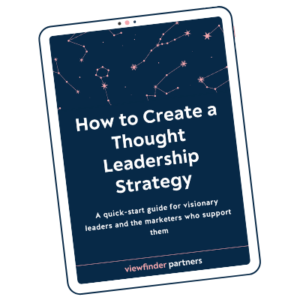I haven’t been able to get something out of my head.
A couple of weeks ago, I was watching the unfolding news at Basecamp. That same weekend, I visited friends I hadn’t seen since COVID started. One of those friends works in tech…and as we sat around a campfire, I wanted to talk to him about Basecamp. 🙃
He hadn’t heard the story, so I gave him the 60-second version. [And here it is for you, if you’re not up to speed: Basecamp is a small but very vocal tech company. Its founders, Jason Fried and David Heinemeier Hansson, built their business on progressive values like rethinking work, building calmer work cultures, continuous learning, transparency, and doing the right thing. Two weeks ago, they shocked employees and the internet at large when they announced in a public blog post that they were changing key employee policies and severely limiting employee conversation about changing the company, including restricting any and all “societal and political” discussions at (remote) work. A third of the company’s employees have quit since then.]
Back to my friend. When I explained this, his reaction was: “Well, they can do whatever they want. It’s their company.”
Oof. I had the opposite reaction. I was feeling surprised, disappointed, and even angry by the Basecamp founders’ actions. I’d read their books and nodded along for years at their philosophy about making work calmer and workloads more manageable. I listened to the Basecamp podcast every week. I ate up their message and believed that they were leaders who put their people first, even when it was inconvenient or uncomfortable.
The Burden of Leadership
Here’s why I think this is such a big deal. They built their brand, their business, on a certain idea — a progressive, forward-thinking idea. And when you’re a thought leader, like they very much are, I think you have a responsibility to earnestly represent the ideas you promote in your actual, everyday work. Thought leadership can’t just be lip service. It can’t be posturing or hollow PR. It’s supposed to be about leading with your ideas.
Doing a 180 and suddenly changing your tune doesn’t just reflect a change in your personal “opinions” — it means a real change in your business, how you treat your employees, and how your customers know and perceive you.
Some have said that the public piling-on around Basecamp is just another example of “cancel culture.” I disagree. This is not like unfollowing a celebrity because they tweeted something nasty or weird that’s totally unrelated to their work.
Thought leadership is your work. It’s thinking out loud about how you run your business, nurture your people, and deliver for your clients. So a sudden change or fallout in someone’s ideas — a shift in their thought leadership — necessitates an actual change in their business, and seems like a completely justifiable reason to leave the company and break your ties as an employee, customer, or casual fan of the brand.
This is why it’s always been clear to me that my work on thought leadership strategy isn’t just about some fluffy brand message. It’s not a marketing campaign or a shot in the dark. It’s core business strategy, because I know that a thought leader’s ideas — their stake in the ground — has to align very closely with their core promise as a business leader. They’re one and the same. And that’s why knowing your business is the first step in knowing your stance as a thought leader.
When you build your perch, you’re not just drawing a circle around the ideas you want to own. You’re drawing a circle around the work you want to do, the clients you want to work with, and the people who will want to work with you.
Yesterday, I talked about all of this with a former client and mentor, Mark. His wise response was to highlight “the burden of leadership.” Being a leader comes with a moral burden. And I think we’re stepping into a time when it’s becoming expected to call out the leaders who refuse to shoulder that burden.
Where Do We Go From Here?
So. What happens when the thought leaders you respect take a left turn — when they make decisions that don’t align with the ideas they’ve built their livelihoods around?
One of my instincts is that we need new, modern role models. I asked a question in the Superpath Slack group last week: Who are the modern thought leaders who inspire you? Who are the diverse voices we should be listening to? Who are the bold new leaders who are actually practicing what they preach?
The answers in that group were interesting:
-
The team at Wildbit, a “people-first” business [get their take on the Basecamp story];
-
the Evergreen companies recognized by the Tugboat Institute;
-
B-Corps and their leaders.
But another answer in that thread has stuck with me: Maybe we need to stop putting people on pedestals in the first place. Maybe we need to expect that no leader will be perfect. Maybe it’s the “heroization” of thought leaders that causes these problems in the first place. Maybe “never meet your heroes” refers to business leaders, too.
I wonder if we should all zoom in a little. Instead of taking our business advice from the loudest voices and the best sellers, could we look a little closer and a little smaller? Some of the people who I admire the most are leaders who share their ideas generously — but don’t have a massive platform, or even a platform at all. You don’t need a giant audience or a series of well-received books to be a “thought leader.” In a media culture where we have “micro-influencers,” maybe we should think about “micro-thought leaders,” too.
I’d love to know: Do you care about what happened at Basecamp? Do you think thought leaders have a certain responsibility to carry out their ideas? And who’s in your next generation of (micro?) thought leaders? Tell me what you think.







